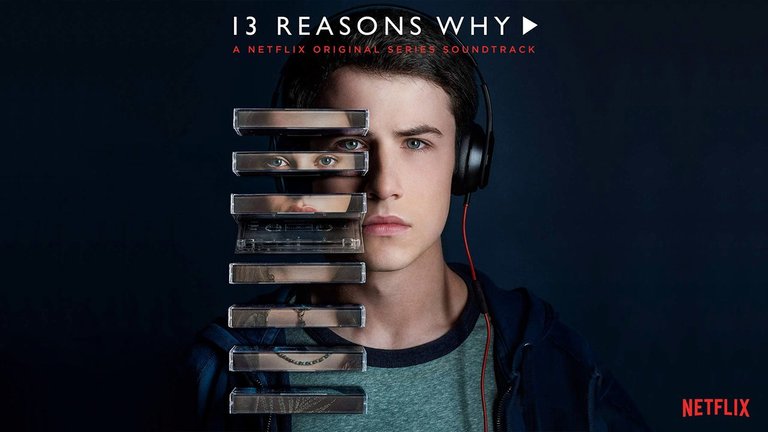Before starting to say that more than a psychological analysis of the series, it is a mere personal opinion with some psychological character and not a definitive diagnosis. The article will also serve to open debate about the series and its psychological aspects (good and bad) through comments. If you do not know the series, I recommend you to read a little about its synopsis or better yet, watch it.
Over the last few weeks there has been a lot of talk about the new Netflix "13 Reasons Why" series, based on a 2007 teen novel by Jay Asher. Recently, it has been questioned by its crudeness in the scenes and it has initiated a debate on its double moral: conscientization or incitement. However, the series of the Netflix platform has become popular and is one of the most successful, widely discussed by such contingent topics as bullying and teen suicide.

Experts in psychoanalysis have done research on the subject by establishing a positive correlation between the handling of information regarding suicide: sensationalism, hero's position of the victim, delivery of direct images of the suicide, transmission of the suicide message among others and the increase of suicidal attempts, particularly in adolescents. Therefore, I can say that these correlations do not mean that there is a causal condition between inadequate exposure of the media and suicidal behavior, but rather, the presentation of famous people or media, that influence the decision to commit suicide in people, who are vulnerable to take that path. In question, vulnerable or suicidal idealized people could naturalize their thoughts and execute a suicide in a "romantic" position, allowing them to dream a heroic end.
Nic Sheff, one of the screenwriters of the series, defended the production, arguing the importance of showing reality, "when we talk about portraying the protagonist's suicide, we found the perfect opportunity to show what suicide is really like. To the spectators to the reality of what happens when you throw yourself from a building in flames towards something much, much worse. What we expect and good television can do is make people talk about what happens in their own lives. It's the first step to recovery", he said in Vanity Fair magazine.
13 Reasons Why, is certainly a shocking story that many people will make you reflect on our society and how the small details can lead to great consequences. It not only tells the story of adolescent suicide, but also rapes, sexual harassment, bullying, love relationships, digital communication, parent-child relationships, friendship and other set of difficulties set in an American institute.
From my point of view, it is a choral series, in which the central theme of the series is school harassment, but the guilty feeling also takes center stage, because all the protagonists are incapable of managing the emotion of guilt by what happened. Actually, it's a shocking series, cruel and very necessary from my point of view despite the critical points. The objective of the series is to reach the more public and take advantage of this type of situations to get the highest awareness of a serious problem that in too many cases goes unnoticed or even comes to hide or subtract importance by the victim itself. The victims feel blocked and impotent to communicate the negative situation that they live and they put smiles where sometimes there are tears, by shame or simply by not worrying about their loved ones.
This has been my small critical contribution to this series, now I would like to know your opinion to expand the analysis. Let's open debate.
Regards, Antonio.
I can say I really enjoyed the show and the drama. The suicide scene was a little over the top. I felt the show still made it's point without that scene. Plus I found the Hannah character to be weak: asking for help, then pushing people away when she doesn't like the answers, then guilt trips people for not chasing after her after she told them off.
Certainly the series should serve to instill to the parents or close associates the importance that they have on the education of the children. The importance of communication and empathy with adolescents. The need to worry more about their emotional state than about academic results. Many times the first question when you get home is whether you passed the exam, when it should be what new experiences you had or if you have met someone new and how it has gone. We are emotional people, not automated machines. The importance of emotional intelligence. Cheers and thank you.